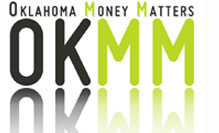Identity Theft Prevention
Identity theft happens when someone steals your personal identifying information like your name, Social Security number (SSN) or bank information and uses it to commit fraud. The average victim spends 300 hours trying to clear their name. That’s like working 24/7 for seven and a half weeks on nothing but the ID theft problem. That’s why prevention is important!
Don’t want to be a victim? Take these precautions to protect your personal information.
- Be careful online. Social networking sites are great, but they’re also an easy way to share too much personal information. Listing your birth date, brother’s name, pet’s name or a picture of your school mascot can give identity thieves useful information.
- Protect your SSN. Don’t carry your Social Security card in your purse or wallet or use the number as an identification number. Always keep your card somewhere safe and never tell anyone your Social Security number unless your parents say it’s OK.
- Lock it up. It’s a good idea to invest in a fire-safe, waterproof lock box to store important documents like financial aid paperwork and anything with account numbers or other personal information on it.
- Be suspicious of emails and phone calls. Banks and credit card companies won’t ask you to verify your information through these methods so if you didn’t initiate the contact be wary of any attempt to gain your information.
- Shred it. Never toss papers that include personal information, like user IDs, passwords, account numbers, birth date or SSN, in a trash can. This could include ATM receipts, pay stubs, credit card offers or junk mail. Talk to your family about investing in a cross-cut paper shredder, so you can destroy all unnecessary documents that contain sensitive information.
- Create strong passwords. Never use your birth date, name or phone number. Choose a password with a mix of characters and numbers that would be hard to guess.
If you notice an increase in junk mail or pre-approved credit offers or mail isn’t arriving like it should, you may be a victim of identity theft. It’s a good idea to periodically check your credit report and make sure nothing illegal is going on in your name. If you’re over 18, visit AnnualCreditReport.com to order a free credit report from each of the three largest consumer reporting agencies: Equifax, Experian and TransUnion. If you’re under 18, your parents may need to make the request on your behalf, but it’s worth the effort to make sure your report is clean.
If someone steals your identity or your personal information is compromised, act fast. Follow these steps to limit the damage.
- Place a fraud alert on your credit reports. Fraud alerts prevent a thief from opening more accounts in your name.
- Close the accounts that have been tampered with or opened without your knowledge.
- File a complaint with the Federal Trade Commission.
- File a police report.
For detailed information about each step, visit IdentityTheft.gov.


